About
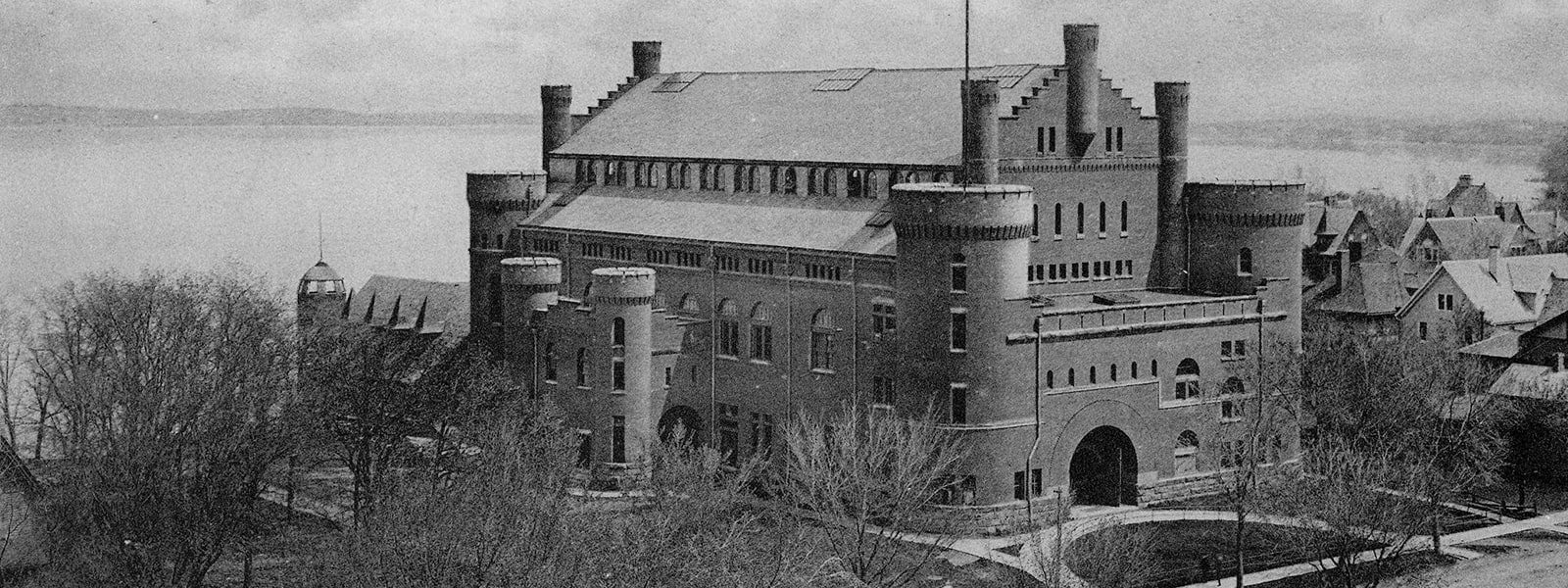
“Whatever may be the limitations which trammel inquiry elsewhere, we believe that the great state University of Wisconsin should ever encourage that continual and fearless sifting and winnowing by which alone the truth can be found.”
The statement above is so important to UW–Madison that it has been called the “Wisconsin Magna Carta.” It is a call for academic freedom and for the fearless pursuit of knowledge. Sifting & Reckoning is inspired by the university’s commitment to “sifting and winnowing”—to the pursuit of truth, wherever it can be found.
Not everyone has been able to fully participate in the pursuit of knowledge. Like all universities, UW–Madison has not always been a welcoming place for everyone. Histories of exclusion have shaped how people have studied and lived here, and who could be here at all.
Yet, across the university’s history, campus community members have pushed back against exclusion and prejudice. Sifting & Reckoning lays bare the forces that limited equal opportunity in education. It also documents the ways that students, faculty, and staff pressed back against those limits and tried to claim an equal place on campus.
The histories in Sifting & Reckoning continue to shape life on our campus. Without understanding these histories, we cannot overcome them. It is up to us as a community to confront the legacies of the past, to remember the people who endured and resisted exclusion and prejudice here, and to commit ourselves to a different future—one that strives to make real, in the words of UW–Madison’s own mission statement, “the ideals of a pluralistic, multiracial, open, and democratic society.”
The history presented in Sifting & Reckoning is not complete. Not everyone’s voice has yet been heard, and many histories remain undocumented and unexplored. We invite you to become part of this process—to help us sift and reckon our way to a fuller and truer history of UW–Madison.
Exhibition photos from the Chazen Museum of Art
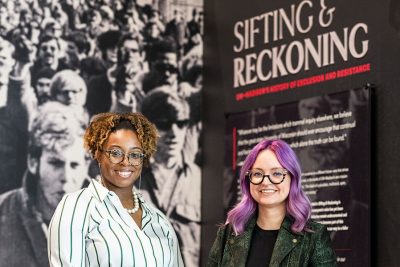
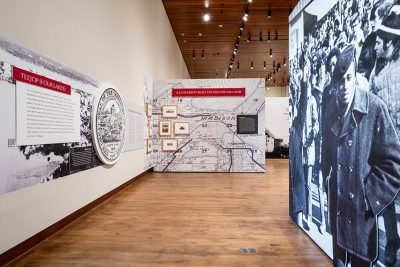
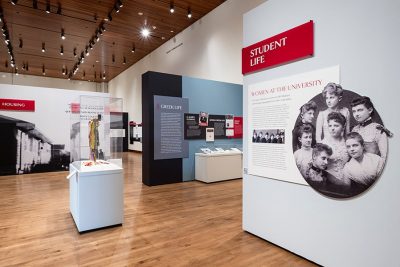
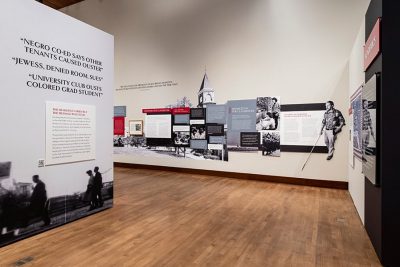

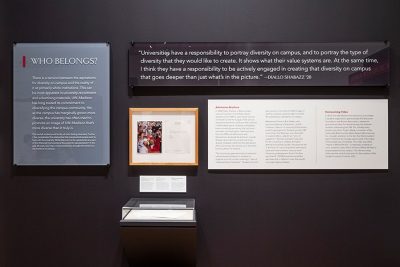
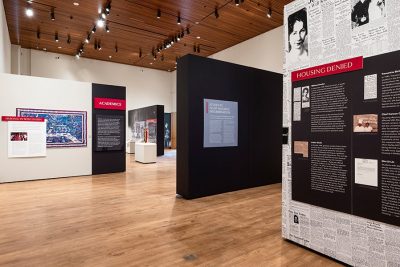
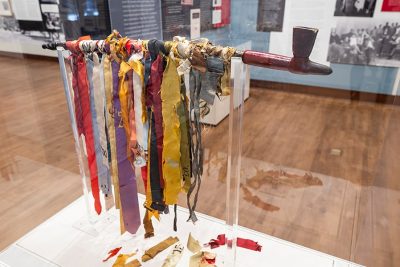
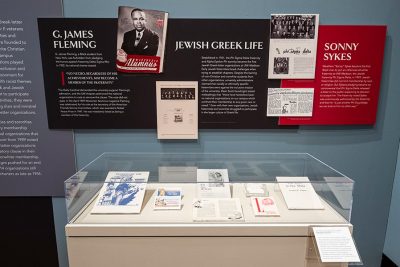
The Public History Project
The University of Wisconsin–Madison’s Public History Project is a multiyear effort to uncover and give voice to those who experienced, challenged, and overcame prejudice on campus. The project grew out of a campus study group that looked into the history of two UW–Madison student organizations in the early 1920s that bore the name of the Ku Klux Klan. Chancellor Rebecca Blank commissioned the Public History Project as one of several responses to the study group’s findings. The broad intent of the project is to ensure that all students and alumni are aware of the full history of the university, including the accomplishments of campus community members from marginalized populations whose stories previously may have been hidden or not widely known.
Credits and Thank-Yous
“Everything worthwhile is done with other people.”
The UW–Madison Public History Project would like to extend its sincere thanks to the following people who helped to make this project a success. This would not have been possible without your support, generosity, and commitment.
Steering Committee
Stephen Kantrowitz, Committee Chair, Plaenert-Bascom Professor of History
Cindy I-Fen Cheng, Professor of History, Director of the Asian American Studies Program
Christy Clark-Pujara, Associate Professor, Department of Afro-American Studies
Daniel Einstein, Historic and Cultural Resources Manager Emeritus, UW Facilities Planning and Management
Noah Weeth Feinstein, Associate Professor, Department of Curriculum and Instruction
Brenda González, Director of Community Relations, UW–Madison
Gabe Javier, Associate Vice Chancellor for Student Affairs, Identity, and Inclusion
Omar Poler, Indigenous Education Coordinator, Office of the Provost
Dr. Floyd Rose, President, 100 Black Men of Madison
Feedback Session Groups
Jay Botsford, Katherine Charek Briggs, Mariana Castro, Susan Tran Degrand, Daniel Einstein, Nan Enstad, Jess Jones, Tamie Klumpyan, Caitlyn Lomonte, Tev Lee, Kelly O’Loughlin, Haley Madden, Mari Magler, Ruben Mota, Chong Moua, Nicole Nelson, Cristian Noriega, Christa Olson, Cat Phan, Alyssa Phelps, Catherine Reiland, Scott Seyforth, Micaela Sullivan-Fowler, Candie Waterloo.
Campus Partners
University Communications; University Marketing; Wisconsin Foundation and Alumni Association; Division of Diversity, Equity, and Educational Achievement; Student Affairs; Memorial Union; McBurney Disability Resource Center; Morgridge Center for Public Service; Center for Teaching, Learning, and Mentoring; Division of Continuing Studies; Office of Human Resources; Office of Legal Affairs; Center for the Humanities; Division of Information Technology; University Health Services; Division of Enrollment Management; UW–Madison Retirement Association; Wisconsin Alumni Research Foundation; Community Relations; Chazen Museum of Art; Division of the Arts.
Thank you to the following schools and departments for your support:
History, Genetics, English, Gender and Women’s Studies, Chican@ & Latin@ Studies, American Indian Studies, Afro-American Studies, Asian American Studies, Curriculum and Instruction, Law, Political Science, Business, Education, Education Policy, Human Ecology.
Student Group Partners
Wisconsin Black Student Union, Black Cultural Center, APIDA Student Center, Latinx Student Center, Latine Student Union, American Indian Student Center, Wunk Sheek, Gender and Sexuality Campus Center, Associated Students of Madison, Student Inclusion Coalition, UW BIPOC Coalition, First Wave.
Research Contributors
Zada Ballew (Pokégnek Bodéwadmik), Joy E. Block, Asher Boernick-Rohr, Gregory Bond, T.J. Braxton, Dustin Cohan, Ayanna K. Drakos, Daniel Einstein, Angelica Euseary, Edward H. Frame, Ezra Gerard, Sergio Gonzalez, Benjamin Graveley, Michael Kaelin, Stephen Kantrowitz, Käri Knutson, Andrew Kraemer, Stu Levitan, Harvey Long, Sebastian Asahel Melmoth, Chong Ntxoo Moua, Alexandra Mountain, Rena Yehuda Newman, Kayla Parker, Angela Peterson, Jonathan Z. S. Pollack, Winifred Redfearn, Scott Seyforth, Richard Wagner, Emma Wathen, Crystal Yichen Zhao.
Chazen Staff
Katherine Alcauskas, John Berner, Kristen Bonano, Casey Coolidge, Jordan Craig, Rosco Ford, Amy Gilman, Lindsay Grinstead, Adam Hutchinson, Kara Morris, Ale Nicolet, Jenaille Northey, Kirstin Pires, Jamie Prey, Jessica Sayer, Jose Seda, Andrea Selbig, Al Schultz, Emma Shore, Kate Wanberg, Candie Waterloo, James Wehn, Tom Wilkowske, Janine Yorimoto Boldt, Kristine Zickuhr.
UW–Madison Archives and Libraries
The Project is grateful for the support of the UW Libraries and the Friends of the Libraries. In particular, thank you to:
Lisa Carter, Steven Dast, Sarah Grimm, Jessie Hansen, Jesse Henderson, Tony Lattis, Andrew McDonnell, Katie Nash, David Pavelich, Cat Phan, Karen Rattunde, Troy Reeves, Mackenzie Reynolds, Mackenzie Ryan, Julia Tanenbaum.
Other Contributors
Leslie Abadie, George Allez, Todd Anderson, Andrea “Tess” Arenas, Mou Banerjee, Daphne Barbee-Wooten, Ariel Beajot, Jessica Belcher, Michael Bernard-Donals, Sheridan Blanford, Rebecca Blank, Sherri Charleston, Patty Cisernos Privos, Ted Crabb, Finn Enke, Aaron Fai, Gia Gallimore, Tara Genske, Cheryl Gittens, Erik Hanisch, Armando Ibarra, Pernille Ipson, Victor Jew, Susan Lee Johnson, Kasey Keeler, James Levy, Tony Michels, Alexandra Mountain, Nicole Nelson, Lisa Normand, Christa Olson, Sophie Olson, Brenda Plummer, Preston Schmitt, Patrick Sims, Sheila Stoeckel, Sasha Suarez, Hazel Symonette, Michael Thornton, Jana Valeo, Kevin Walters, Peter Wardrip, Grace Watkins, Kristen Whitson, John K. Wilson, Susan Zaeske, McKenzie Zdrale.
Other Contributing Organizations
Wisconsin Public Television
Wisconsin Historical Society
In conclusion
“True resistance begins with people confronting pain … and wanting to do something to change it.”
As we fearlessly sift and winnow through the university’s past, many hard truths emerge. We also find hope, and the ever-present possibility of change for the better. The university has changed in many ways across its history, often because members of the campus community have demanded it.
We believe that reckoning with our history can lead us to a better future, and that unless we acknowledge and learn from our past, we cannot move forward together. The future is not yet written. What happens next is up to us.
The UW–Madison Public History Project was made possible with support from the Office of the Chancellor using private funds.